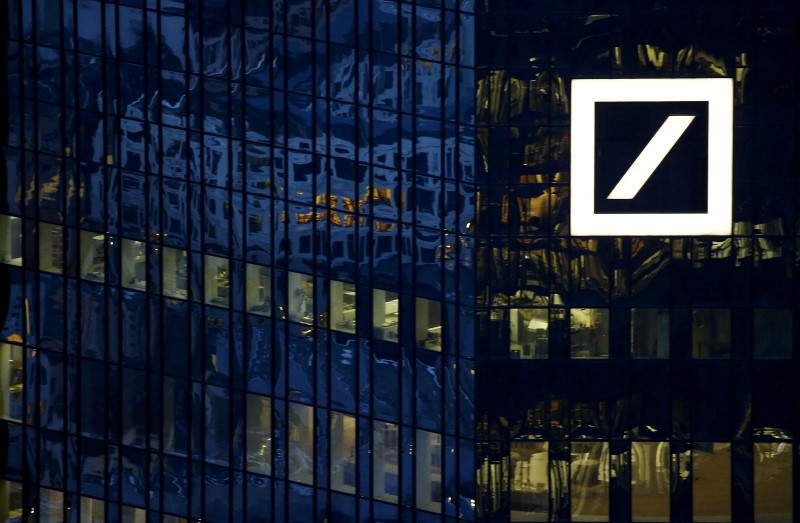FRANKFURT (Reuters) - Deutsche Bank's (DE:DBKGn) links to the world's largest lenders make it a bigger potential risk to the wider financial system than any other global bank, the International Monetary Fund (IMF) said on Thursday.
The IMF compared possible threats to financial stability stemming from globally systemically important banks, known as "G-SIBs", in a review of Germany's banking and insurance sector.
"Among the G-SIBs, Deutsche Bank appears to be the most important net contributor to systemic risks, followed by HSBC (L:HSBA) and Credit Suisse (S:CSGN)," the fund said.
Global regulators have tried to make such banks more robust following the financial crisis to limit the impact of a bank collapse such as the implosion of U.S. firm Lehman Brothers.
"The relative importance of Deutsche Bank underscores the importance of risk management, intense supervision of G-SIBs and the close monitoring of their cross-border exposures," the IMF said, adding it was also important to quickly put in place measures for winding down troubled banks.
Germany's largest lender declined to comment on the report.

Its shares fell by nearly 5 percent earlier on Thursday after the U.S. Federal Reserve said it was one of only two lenders to have failed an annual test of financial resilience in hypothetical stress scenarios.